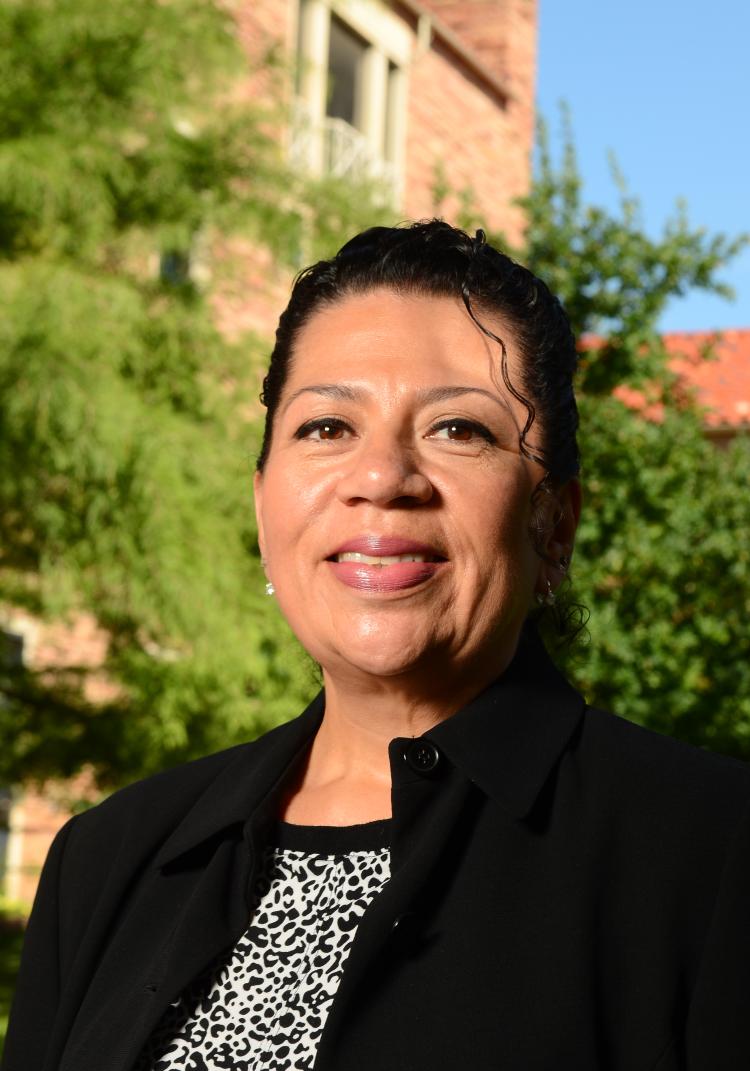$5 million in grants make master's degrees possible for 90 teachers of diverse learners
Ninety Colorado educators will earn free or sharply discounted master’s degrees and specialized state endorsements through CU Boulder thanks to two $2.5 million grants. The support, comprising two unique-in-the-nation programs, is designed to better prepare teachers to work with students from diverse backgrounds, including those with disabilities.

Associate research professor John Hoover works with a group of Eagle County educators.
The programs, funded by the U.S. Department of Education Office of Language Acquisition and offered by the BUENO Center for Multicultural Education at CU Boulder’s School of Education, launched in January in the Poudre School District in Fort Collins, Colorado, and in Eagle County Schools on the Western Slope of the state. They come at a time when demand is high for teachers trained to work with English learners and students with disabilities.
The number of English learners has doubled over the past decade in the Poudre district. In Eagle County schools nearly 35 percent of its 7,000 students are English learners. And nationwide, only 30 percent of teachers of English learners are adequately prepared to work with them, research has shown.
“Teachers misunderstand language acquisition as a disability, or cultural diversity as an indicator of a problem because these students may behave differently than what is typically expected in classrooms,” Hoover said. Special needs assessments are often done only in English, which frequently biases the results, he noted. “Often, in reality, there is nothing wrong.”
For: K-12 teachers and administrators
What: Experts will lead an inspiring and thought-provoking two-day institute covering topics related to culturally and linguistically diverse education
Date: July 19-20, 2017
Cost: $295 by March 31; $350 April 1 and after
More information: www.buenocenter.org
"Teachers are eager to increase their knowledge about how to better serve all the students in their classrooms, yet they often cannot afford to pay for master's degrees," said the BUENO Center's Tammy Molinar-LeBlanc, director for the Poudre Masters/Endorsement Program. "Programs like this make it possible."
Associate research professor John Hoover, principal investigator for the Eagle County program, notes that when teachers lack preparation to work with students from culturally and linguistically diverse backgrounds, they often misinterpret learning differences as learning disabilities.
About 13 percent of students in special education programs nationally are English learners, and in some regions the number is as high as 25 percent. Yet, only 9 percent of students nationally are English learners, indicating they are overrepresented in special education.
“Teachers misunderstand language acquisition as a disability, or cultural diversity as an indicator of a problem because these students may behave differently than what is typically expected in classrooms,” Hoover said. Special needs assessments are often done only in English, which frequently biases the results, he noted. “Often, in reality, there is nothing wrong.”
Through one of the CU Boulder programs, 30 participants teaching K-6 in mountain schools will earn master’s degrees in education equity and cultural diversity. They’ll also receive two endorsements from the state: special education and culturally and linguistically diverse. The grant also will fund approximately 70 teachers of pre-K through 12TH grade who already have master’s degrees to get additional training in serving English learners, including those with disabilities.

Tammy Molinar-LeBlanc
Through the other program, though there’s no special education endorsement, 60 pre-K-12 teachers will earn the same master’s degree and the culturally and linguistically diverse endorsement. They’ll learn not only how to help students for whom Spanish is their primary language, but also students who – like many along the Front Range – came here from Somalia, Sudan, or other distant countries, according to Molinar-LeBlanc.
“Imagine going into the library and the classroom and finding no books in your native language, and having a teacher who doesn’t look like you and doesn’t speak your language,” she said. “That can feel really alienating and scary for these kids.”
For both programs, CU Boulder delivers the coursework through a hybrid online and on-site format. Some students pay a small fee of $100 per class to cover instructor travel expenses.
Noelle Cimino, a program participant and substitute teacher in Eagle County, said the vast majority of her students are Spanish speakers and some are being analyzed for special education.
“Through this program, I hope to learn new techniques that will allow all these students to flourish in the classroom,” she said. “Without this grant I either wouldn’t be able to pursue a master’s or I’d be buried under piles of debt.”


